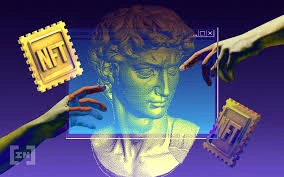How Web3 Is Quietly Shaping Legal Norms and Regulatory Concerns in Everyday Life
Web3 might sound like the next chapter in internet tech — but it’s also the next frontier in legal risk, compliance, and regulation. While its influence on daily life might feel subtle, Web3 is quietly pushing boundaries in payments, data control, ownership, and digital identity — and legal frameworks are struggling to keep up. From financial regulators to intellectual property attorneys, the Web3 lifestyle impact is no longer hypothetical. It’s real, it’s happening, and it’s forcing legal systems to adapt.
Digital Payments in Web3 Lifestyle Impact: Convenience Meets Compliance
You’ve probably seen crypto payment options pop up on select checkout pages. Behind the scenes? Regulatory complexity.
Decentralized finance (DeFi) is transforming how digital payments work, but it also raises serious compliance questions:
- Is that token a security?
- Does accepting crypto require a money transmitter license?
- Who’s liable if a smart contract fails?
Stablecoins, often used in everyday crypto transactions, add another layer: Are they digital cash equivalents? Are they regulated by banking authorities? And are they truly “stable” when tied to unregulated reserves?
The lifestyle appeal is clear — faster, borderless transactions. But the regulatory reality is still evolving, often jurisdiction by jurisdiction.

Web3 Lifestyle Impact in Social Media: Data Sovereignty and Content Ownership
Decentralized social platforms like Lens Protocol and Farcaster are gaining attention for flipping the script on data ownership. Users own their content, their followers, even their digital identities — a win for individual control, right?


Legally, it’s murkier.
- Who’s responsible for moderation when no single company controls the platform?
- Can users be held liable for decentralized content that’s immutable?
- How do GDPR or CCPA apply when data isn’t stored by a traditional entity?
Web3 challenges foundational principles of platform accountability and data protection laws. Regulatory frameworks built for centralized tech companies aren’t yet equipped to handle fully decentralized alternatives.
NFTs and Digital Property Rights: Who Really Owns What?
From music to art to in-game assets, NFTs are becoming a mainstream concept — but they also expose a key legal question: What does digital “ownership” actually mean?
Owning an NFT often doesn’t mean owning the underlying asset — just a reference to it. Without standardized licensing, users may assume they have broader rights than they actually do, leading to IP conflicts and false claims of ownership.
From a regulatory standpoint, this is a gray zone:
- Are NFT creators violating copyright laws?
- Are marketplaces liable for unauthorized sales?
- Should NFTs be taxed like property, collectibles, or something else entirely?
Clarifying property rights in the metaverse will be one of the defining legal challenges of this decade.


Digital Identity: Empowerment or Legal Risk?
Web3 platforms are experimenting with decentralized identity — where users manage their own credentials without relying on platforms like Google or Facebook.


It’s empowering on the surface, but legally complex:
- Who’s responsible for identity verification?
- Can decentralized IDs be used in legal contracts?
- How do you prosecute fraud in a peer-to-peer identity system?
Governments and regulators are watching closely. Some countries are even exploring official Web3-based ID systems, while others worry about anonymity enabling illicit activity.
Challenges Ahead: Legal Frameworks Playing Catch-Up
Let’s be honest — the law is not keeping pace. Web3 is moving fast, and many of its innovations don’t fit cleanly into existing regulatory boxes.
We’re still debating:
- How to define “decentralization” legally
- How liability works when there’s no central operator
- Whether DAOs can be recognized as legal entities
Until those questions are resolved, Web3 platforms carry a risk profile that’s still largely undefined — something legal teams, compliance officers, and users all need to recognize.
Final Thoughts: Web3 Lifestyle Impact Isn’t Just Cultural — It’s Legal
Web3 is changing how people live — how they pay, post, own, and identify online. But that’s only half the story. The other half is legal: new rights, new risks, and new responsibilities.
For legal professionals, ignoring Web3 isn’t an option. Whether advising a company, enforcing a regulation, or drafting a policy, it’s time to recognize how these technologies are reshaping everyday life — and what that means for the rule of law in a decentralized future.
Because as Web3 continues to quietly integrate into our lives, the next legal revolution may already be underway.
Relevant Link : Here





